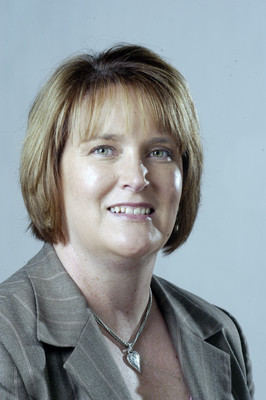Money flowing from top of party
Sean Fellows, a Republican running for state Assembly, is running against April Mastroluca, but looking at Mastroluca's campaign finance report, you might think Fellows is running against the entire Democratic Party.
Mastroluca's campaign is funded almost entirely by other Democratic politicians, from Assembly Speaker Barbara Buckley to County Commissioner Chris Giunchigliani.
Of the $75,000 Mastroluca raised for her campaign through July 31, $53,000 came from Democratic politicians. Another $14,000 came from labor unions, with $8,000 from other individuals and corporations.
Fellows, for his part, had raised more than $150,000, with just 10 percent of his financial support coming from other Republican politicians.
It's the same story in other legislative districts with competitive open seats that are both parties' top targets in the November general election.
It raises questions about whether the candidates can claim a broad base of support or whether they are proxies for Democratic legislative leaders hoping to expand their caucuses.
Democratic candidates usually like to point to "a long list of $100 donations" as proof they have grass-roots, community support for their campaigns, said Eric Herzik, a political scientist at the University of Nevada, Reno, who is a registered Republican.
"That's not a good sign for those candidates if they're doing no outreach beyond the party elite," Herzik said. "You've got the Democratic leadership essentially trying to buy increased influence. That's a change from the past, and it's very different than saying you represent the grass roots."
Mastroluca, a first-time candidate who works for the national Parent Teacher Association, noted that she got into the race late after Democrat Susan Gerhardt decided not to run again for health reasons.
Mastroluca said the donations from politicians and unions were "just to help me get off the ground." She said her next campaign finance disclosure would show more diverse financial support.
"Ever since the end of the reporting period, I've been getting support from people outside the Democratic Party. I'm definitely building grass-roots support," she said.
Mastroluca said the donations do not mean she would merely be a partisan voice if elected.
"What's important to me is representing the people in my district, not just the views of the Democratic Party."
Mastroluca's contributions from Democratic politicians represented 71 percent of her total fundraising. Other Democratic candidates reported a similar influx:
• Marilyn Dondero Loop, a Democrat running in Assembly District 5, got $49,000 of her $79,000 total contributions from Democratic candidates and committees, 62 percent of the total. Her Republican opponent, Donna Toussaint, raised $64,000, 10 percent of it from Republicans.
• Allison Herr, a Democrat running in Assembly District 23, got $56,000 of her $88,000 in contributions from Democratic politicians and groups, 64 percent of the total. Her Republican opponent, Melissa Woodbury, raised $76,000, 9 percent from Republicans.
Democratic hopefuls in two targeted state Senate races also had ample support from their party:
• Allison Copening, running against Republican Sen. Bob Beers, raised $121,000, 40 percent of it from Democrats. Another 40 percent came from unions.
• Shirley Breeden, running against Republican Sen. Joe Heck, raised $101,000, 36 percent of it from Democrats. She got less than $10,000 from unions. Some of them, including law enforcement and teachers, have endorsed Heck.
The situation is somewhat different in Senate races because Republicans, who reported getting about 5 percent of their latest fundraising from GOP sources, are incumbents and thus better equipped to hit up lobbyists, business leaders and other big donors for contributions.
Assembly Speaker Barbara Buckley, D-Las Vegas, said Democrats who hold elected office have showered some first-time candidates with contributions because they believe in them.
"We believe that they are bright, dedicated, quality candidates who, if elected, will make our state proud. Just speaking for myself, I am happy to donate to them as other Democrats donated to me when I was first starting out and knew very few people."
Donations their Republican opponents might be racking up from lobbyists and corporations hardly amount to grass-roots or community support, Buckley said. "Are you more concerned that a candidate receives money from an elected official who has a reputation for honesty and integrity, compared to $10,000 from The Venetian?"
All the Republican candidates in question have received thousands of dollars from Las Vegas Sands Corp., The Venetian's parent company, whose chairman, Sheldon Adelson, is a backer of Republican and right-wing causes.
Many also have support from out-of-state corporations, such as Wal-Mart, that are traditionally unfriendly to Democrats.
Buckley noted the Democratic candidates' late entry in the race and said, "I think you'll see in the next finance report, they will have exceeded their opponents when it comes to donations from other individuals."
Fellows got into the District 29 race early and has been campaigning aggressively. He said Mastroluca's fundraising indicates "I have a target that's been placed on my back, clearly, by the Democrat leadership."
Fellows said he's proud that more than a fourth of his fundraising has come from individuals.
"If anything, it shows that I'm out in the community. I'm out meeting community groups, organizations, small businesses and individual donors who have an interest in making Nevada better. Clearly, she is getting her support from a more limited pool."
Herr said many can't afford to make political donations in these tough economic times. She said that doesn't change her determination to serve.
"I don't think where my funding comes from is indicative of support within the community," she said. "We take an oath to represent people in our district and the people of Nevada generally, and that's my intention. I intend to be an independent voice, regardless of the source of my funding."
Contact reporter Molly Ball at mball@reviewjournal.com or 702-387-2919.


















